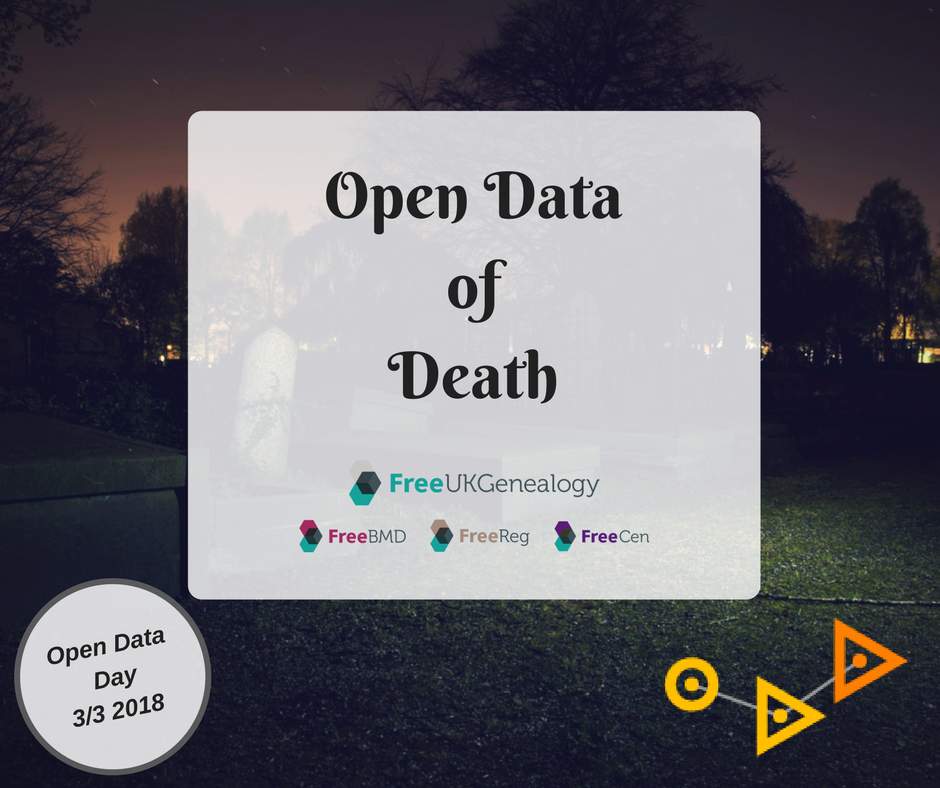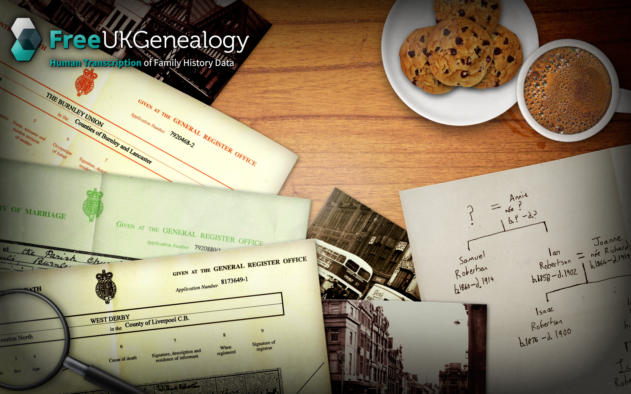Opening Death Data for Genealogists and Other Historians

Open Data Day is an annual celebration of open data all over the world. On Saturday 3rd March groups from around the world will create local events on the day where they will use open data in their communities. It is an opportunity to show the benefits of open data and encourage the adoption of open data policies in government, business and civil society.
All outputs are open for everyone to use and re-use. Research Data is one of four themes for this year's Open Data Day.
All three of our current projects contain information which is invaluable to family historians and other researchers. The indices to the registrations of death in England and Wales are, of course, freely available on www.freebmd.org.uk. Civil registration only started in 1837, so to find deaths which occurred earlier, you can look on www.freereg.org.uk, to see Church of England and other burials. Later burials are there too, from the Church of England Registers and a growing range of religious organisations and secular bodies. Most recently, we have received images of burial registers from Lancashire that are awaiting transcription - sign up here to help get them on line sooner!

Surprisingly, perhaps, the census records we transcribe and share on www.freecen.org.uk also have information about death. On https://freecen1.freecen.org.uk you can search by occupation, and this includes those who worked in various aspects of the businesses surrounding death. Restricting the search to Cornwall, in 1841 there was just one (funeral) "undertaker" recorded (in St Austell) In 1851, four undertakers are recorded:
In 1861, just one again is recorded, and in 1871 five including Jabez Parkyn. A decade later, the Parkyn name becomes even more visible, as the children of the family (shown below in the 1871 census) continued the family trade, all three describing themselves as "Builder & Undertaker":
But in 1891, although the number had grown to 11, none of them was a Parkyn. Jabez senior and Jabez junior (now spelled Parkin) are recorded purely as Builders, Jabez William A had become a painter.
This brief look raises many questions - many undertakers had more than one occupation (carpenter or mason being common). Were others who were recorded only as masons or carpenters also arranging funerals? We have not yet enabled a search-by-occupation feature on FreeCEN2 - we'd love to know if you would use this feature, and how you would like the search of occupations to work there.
I restricted the data to Cornwall, as we now have permission to share this dataset as Open Data - please contact us to request access to this dataset. Sharing this data as Open means that the history of undertaking in Victorian Cornwall can be undertaken (excuse the pun!) much more easily than for other counties.
Please join us in exploring our records on 3rd March, commenting here or on our Facebook event. We'd love to know anything you are doing with the data of death - for example if you are researching the Undertaking Parkyns of Cornwall, exploring longevity, or if you would like us to transcribe the records of your church or share the transcriptions from a graveyard survey.